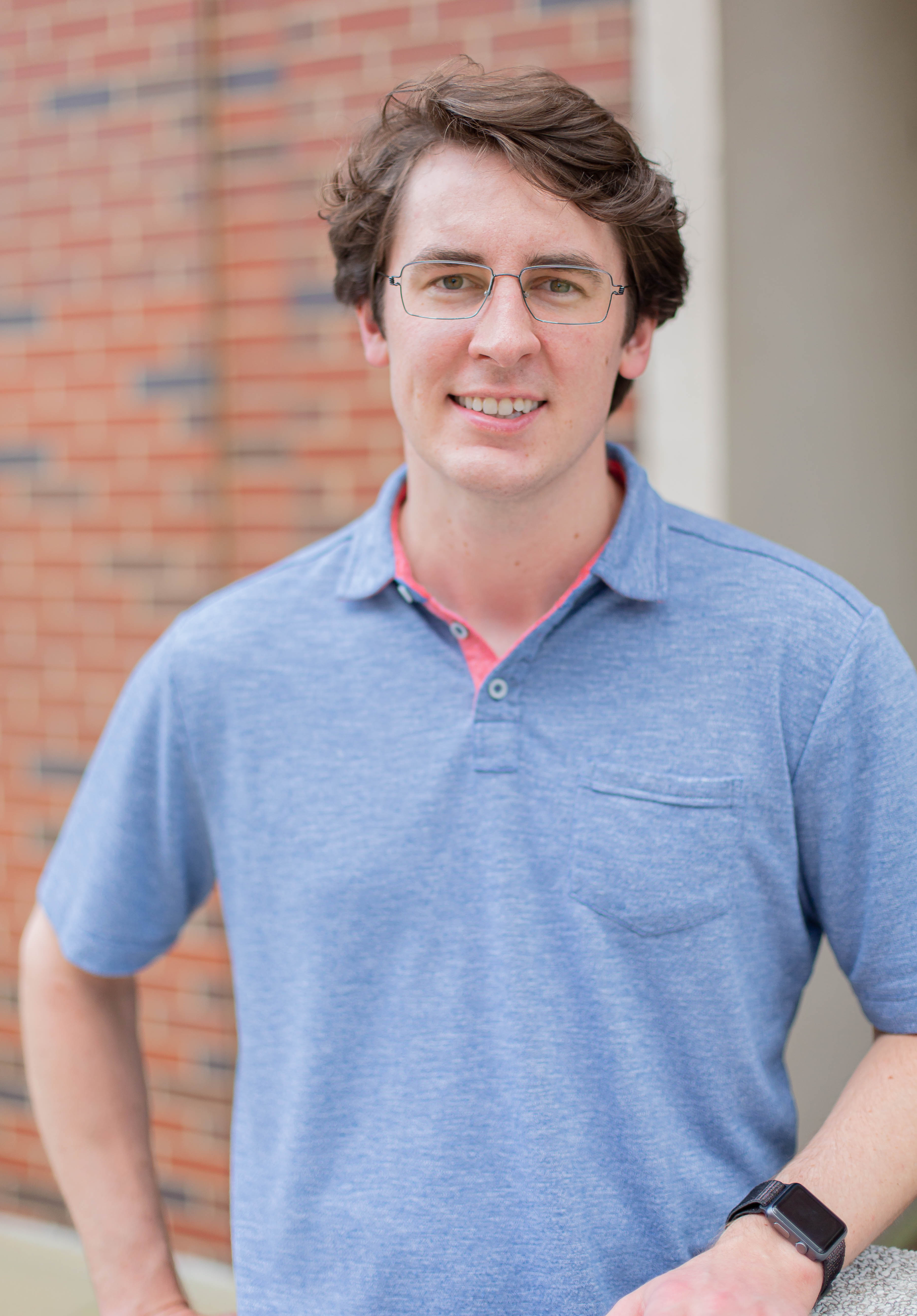by Caleb Jones
Seth D. Fortmann, a dual degree MD/PhD student enrolled in the Vision Science Graduate Program (VSGP), has been awarded an F30 research grant from the National Institute of Health’s National Eye Institute (NIH/NEI). The total grant amount is $208,840 and marks the first time in UAB School of Optometry (UABSO) history that a VSGP student has been awarded an F30 grant.
“Having an MD/PhD student as part of our Vision Science Graduate Program is already a special advantage,” said Lawrence Sincich, PhD, VSGP director. “Mr. Fortmann’s success with this predoctoral award from NEI adds so much more. It showcases the quality of our students and brings extra sparkle to the national prestige of our training program.”
Fortmann’s research is focused on the molecular mechanisms that underly prevalent retinal diseases, specifically age-related macular degeneration and diabetic retinopathy. His research is conducted in the lab of UAB Heersink School of Medicine Professor Maria Grant, MD, who serves as his research advisor.
Through a collaboration with the Advancing Sight Network in Birmingham, AL, Fortmann has access to human donor eyes, which provides the opportunity to study the disease firsthand.
Using transcriptomics, his research team has identified a potential disease mechanism in age-related macular degeneration involving the macrophages that reside in the vascular bed directly behind the retina.
“We are using a variety of molecular techniques to validate and better understand the dysfunction observed in these cells. In diabetic retinopathy, we are collecting retinas for a large single-cell RNA-sequencing experiment, which we believe will provide extraordinary insight into the molecular mechanisms responsible for this prevalent blinding disease.”
Fortmann’s hope is that the research identifies novel therapeutic targets for age-related macular degeneration and diabetic retinopathy.
“As a student doctor, my passion for research is founded on the opportunity to expand our understanding of disease mechanisms as a means to develop superior treatments that improve patient outcomes,” he said.
The Maryland native’s short-term goal is to train in ophthalmology as a retinal surgeon.
“Ultimately, I want to join the faculty at a major academic medical center as a physician-scientist where I can practice ophthalmology and run a laboratory that studies the diseases I treat in the clinic. “
According to the National Institute of Health, the purpose of F30 research grant is to enhance the integrated research and clinical training of promising predoctoral student in a combined MD/PhD or other dual-doctoral degree training program, who intends to pursue a career as physician/clinician-scientists. The fellowship experience is expected to clearly enhance the individual's potential to develop into a productive, independent physician/clinician-scientist.
